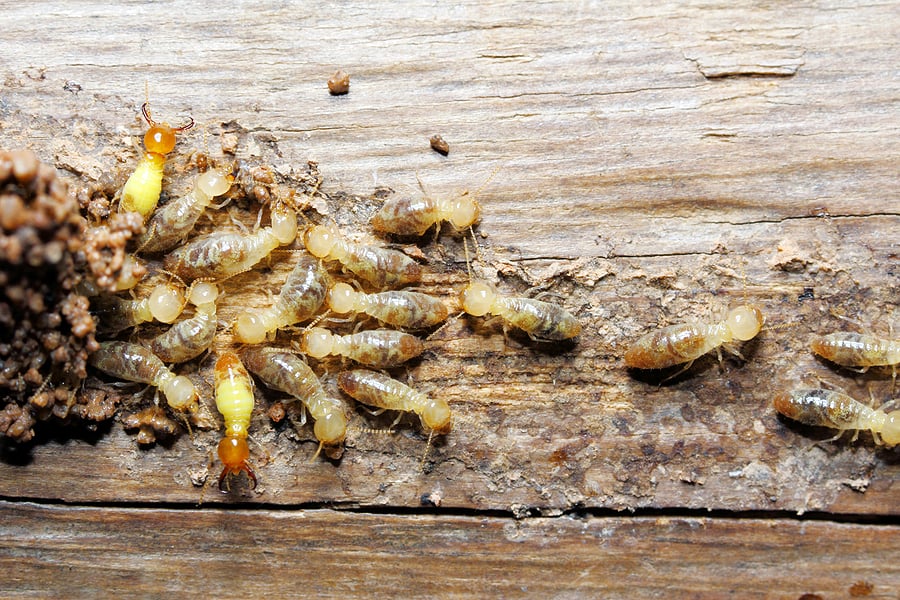Environmental Impact of Pest Control: Harmonizing Effectiveness With Sustainability
The environmental impact of bug control is an essential issue that calls for a delicate equilibrium in between attaining effectiveness in making sure and taking care of parasites sustainability of our environments. From the usage of harmful chemicals that leak into our dirt and water to the unintended repercussions on non-target types, the consequences of standard insect control techniques are far-reaching.
Damaging Chemicals in Insect Control
The use of dangerous chemicals in bug control presents significant ecological and health and wellness dangers that warrant careful consideration and mitigation techniques. Herbicides, insecticides, and pesticides are frequently utilized to eliminate pests, but their extensive application can result in unplanned repercussions. These chemicals can contaminate soil, water resources, and the air, influencing not only the targeted insects but additionally useful insects, wild animals, and humans.

To resolve these threats, incorporated parasite monitoring (IPM) methods are being advertised as an extra lasting choice. IPM entails a mix of techniques such as organic control, habitat control, and the targeted usage of pesticides as a last resort (ant control walkerton nc). By taking on a holistic strategy to pest control, we can lessen the environmental and health influences related to unsafe chemicals while properly handling pest populations
Effect On Non-Target Types
Considering the unintentional repercussions of pest control approaches, the effect on non-target species is a critical facet that needs comprehensive evaluation. While bug control steps aim to target specific bugs, other microorganisms in the community might be accidentally influenced. Non-target species, consisting of useful insects, birds, animals, and also plants, can suffer indirect or direct damage from chemical applications or biological control techniques.
Pesticides can have sub-lethal or lethal results on non-target species. Pesticides developed to deal with a particular insect parasite may hurt pollinators like or all-natural predators such as ladybugs. Furthermore, chemical deposits can build up in the setting, affecting non-target organisms gradually. Similarly, biological control representatives, if not species-specific, can present threats to unintentional targets, disrupting the environmental balance.
To mitigate the influence on non-target species, integrated pest management (IPM) strategies that emphasize a holistic technique to pest control are suggested. These techniques prioritize the use of environmentally friendly practices, reducing harm to helpful microorganisms while efficiently handling pest populations. Conducting comprehensive risk assessments and keeping an eye on the outcomes of insect control initiatives are vital steps in protecting non-target species and advertising total environment health and wellness.
Soil and Water Contamination
Unexpected ecological consequences of bug control methods prolong past impacting non-target types, with substantial implications for dirt and water contamination - termite control. Chemicals, herbicides, and chemical fertilizers utilized in bug control can seep into the dirt and contaminate groundwater, positioning a danger to both earthbound and marine ecosystems.
Water contamination is another crucial issue associated with parasite control practices. To minimize dirt and water contamination from parasite control tasks, integrated insect administration methods that prioritize sustainability and reduce chemical inputs are important.
Air Contamination From Pesticide Use
Exposure to airborne chemicals during agricultural applications postures a substantial worry for air contamination control procedures. When pesticides are splashed onto crops, they can volatilize into the air and kind unpredictable organic compounds (VOCs) and various other airborne toxins. These chemicals can add to the development of ground-level ozone, a major part of smoke that can have damaging effects on human wellness, crop productivity, and general air top quality. Furthermore, chemical drift, where pesticides are lugged by the visit this page wind to unexpected areas, can bring about the contamination of neighboring communities and water bodies.

Approaches for Sustainable Pest Control
In the world of agricultural methods, implementing sustainable bug control strategies is paramount for maintaining environmental equilibrium and guarding crop returns. Sustainable parasite control highlights making use of eco friendly methods to manage bug populations efficiently while reducing damage to non-target microorganisms and ecological communities. Integrated Bug Management (IPM) is an extensively adopted approach that combines organic, cultural, physical, and chemical control methods to achieve lasting insect monitoring services.
One secret strategy in sustainable pest control is promoting biodiversity within agroecosystems. By enhancing all-natural enemies of insects, such as parasitoids and killers, farmers can lower the need for synthetic pesticides. Crop turning and diversity are additionally efficient techniques to disrupt pest life process and develop much less positive problems for bugs to thrive. Additionally, utilizing pest-resistant plant ranges and employing techniques like catch chopping can help in reducing parasite pressure without counting heavily on chemical interventions. Eventually, by incorporating these lasting bug control techniques, farmers can accomplish an equilibrium between pest monitoring performance and environmental stewardship.
Conclusion
In final thought, the ecological influence of bug control approaches must be very carefully thought about to balance performance with sustainability. Hazardous chemicals made use of in pest control can result in dirt and water contamination, air pollution, and damage non-target species - ant control. It is crucial to carry out lasting pest control approaches to minimize these negative impacts on the setting and promote a much healthier ecological community for future generations
By taking on an alternative technique to pest control, we can minimize the ecological and wellness influences linked with harmful chemicals while properly taking care of pest populations.

To mitigate the air pollution created by chemical usage, it is essential to embrace incorporated insect administration methods that focus on the use of non-chemical bug control approaches, such as plant turning, all-natural killers, and resistant plant ranges. Sustainable insect control emphasizes the use of ecologically pleasant approaches to handle bug populations successfully while reducing damage to non-target microorganisms and ecosystems. Integrated Parasite Administration (IPM) is a commonly adopted strategy that integrates organic, cultural, physical, and chemical control techniques to attain long-term pest management remedies.
Comments on “Efficient Ant Control: Professional Services to Get Rid Of Ant Infestations”